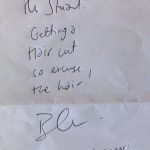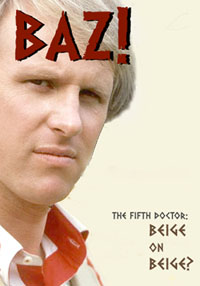The Troughton Era
Thursday, February 28th, 2013
The years of the clown
In 1991 I was lucky enough to be at the first Manopticon convention inManchester. It boasted two Doctors in attendance, the author of this Blog’s favourite: Colin Baker, and my Doctor:Jon Pertwee.
On first, rascally Baker told a Two Doctors anecdote about his co-star, Patrick Troughton which garnered prolonged, thunderous applause that must have shaken the venue’s foundations. “You hear that, Pat?” shouted Baker, casting his eyes heavenward, before grinning and adding “Good, Pertwee will hear this and think it’s for me!”
Whether Baker ever knew that Pertwee wickedly returned the favour the following day with an equally rapturously-received Troughton recollection from The Three Doctors is not on record.
The point is: everybody loves Pat. Of all the ‘classic Doctors’, the Cosmic Hobo never seems to have endured the ‘cooling-off’ period which the others have; never had to suffer the slings and arrows of capricious fandom. And anyone who’s ever seen Troughton, in anything, can see why. Whether it’s opposite Christopher Lee in Scars of Dracula, or Gregory Peck in The Omen, is abundantly clear he could hold his own against the very best in the business.
Opposite the likes of Frazer Hines and Wendy Padbury however, he didn’t just have to hold his own, but seemingly support entire last-minute and rewritten stories, brace hours of near-identical bases under siege and carry drab set-fulls of interchangeable characters.
There, I’ve said it. I’m sorry: while I unhesitatingly agree that Patrick Troughton and the Second Doctor are a sublime creator and creation, but that doesn’t mean all his episodes were too; as hard as many might want to believe. The reputation of Troughton’s run seems ironically enhanced by the fact that so little remains. This scarcity of evidence has led many to smile fondly at the memory of masterpieces almost none have actually seen, even after the hard lessons not learned following the recovery of Tomb of the Cybermen.
We often forget how close the end credits of the tenth instalment of The War Games came to being our last Who ever.
I admit I’m shallow: the murky, stagey, shouty remains of the Sixties are never the first place I go when looking to watch some Who. And I also know the dangerous ground on which I walk, recalling well that fateful interview that Matthew Waterhouse gave DWM, when he committed the cardinal sin of giving his honest opinion about a certain Troughton-era companion. The vilification young Adric received in the following month’s letters page even caused DWM to distance itself from Mr Waterhouse’s personal views.
Despite some assertions that Troughton is not entirely ‘in character’ throughout, The Three Doctors remains one of my favourite Second Doctor stories. Unhindered by his traditional monochrome baggage, he’s delightful: puckish, feisty and his irreverence and smoke-screen frivolity lend the story it’s funniest and most memorable moments.
I love the Second Doctor as much as any of the others, possibly more so as he always tried to give my own favourite a hard time, and I still love him. But like any other incarnation, his stories are far from perfect, his companions far from flawless and his monsters some way from being universally convincing. The Second Doctor: not the Messiah, just played by a very, very good actor.
Zeus Blog wishes to distance itself from the personal views of Mr Hughes.
AH







 It could be said that we get the Doctors we deserve. We certainly seem to get the man for the age – each Time Lord to date has been, unavoidably, a fair representation of his creators’ and audience’s times – the Sixties hobo, the Seventies Soho, the Noughties Emo. But spare a thought for the early-decaders, the cusp-trippers who have one foot in each decade; is Pertwee truly indicative of the era that kicked off just as he did? Isn’t Hartnell more a symptom of repressed post-war Fifties UK than fellow traveller to his swinging successor? And didn’t fan necromancy make the seventh Doctor more a Nineties antihero than an Eighties one? Indeed, it was as recently as January that next-up honcho Steven Moffat described Colin Baker as ‘The Eighties’. There’s no denying Tom was The Seventies – he nearly spanned the decade, but where does that leave Peter Davison’s Fifth Doctor? Well…
It could be said that we get the Doctors we deserve. We certainly seem to get the man for the age – each Time Lord to date has been, unavoidably, a fair representation of his creators’ and audience’s times – the Sixties hobo, the Seventies Soho, the Noughties Emo. But spare a thought for the early-decaders, the cusp-trippers who have one foot in each decade; is Pertwee truly indicative of the era that kicked off just as he did? Isn’t Hartnell more a symptom of repressed post-war Fifties UK than fellow traveller to his swinging successor? And didn’t fan necromancy make the seventh Doctor more a Nineties antihero than an Eighties one? Indeed, it was as recently as January that next-up honcho Steven Moffat described Colin Baker as ‘The Eighties’. There’s no denying Tom was The Seventies – he nearly spanned the decade, but where does that leave Peter Davison’s Fifth Doctor? Well… 